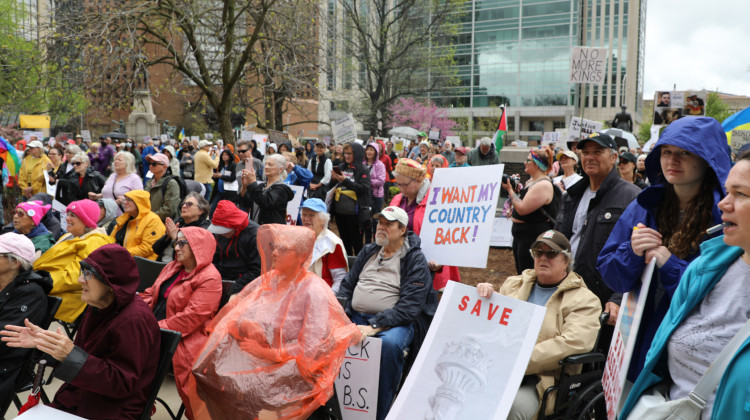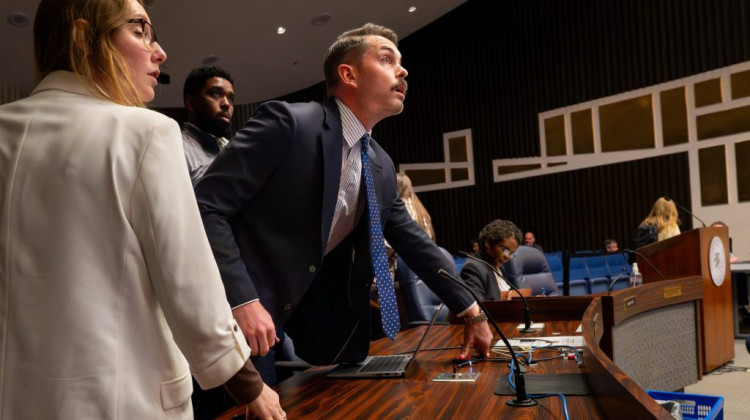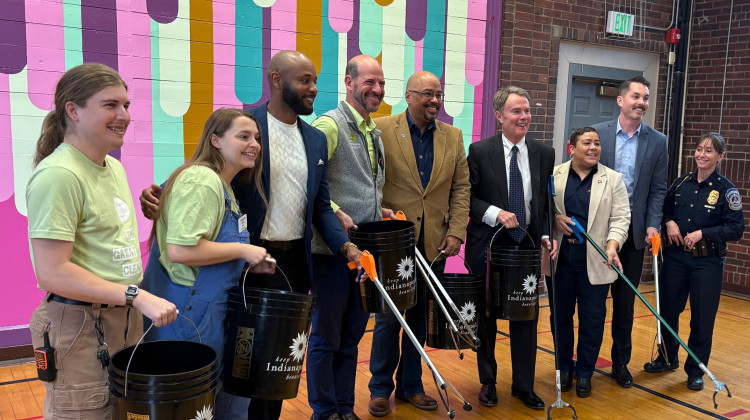
Recovery advocates meet with U.S. Sen. Joe Donnelly at The Willow Center in Brownsburg.
Photo courtesy of The Willow CenterAfter introducing bipartisan legislation focused on the opioid epidemic, U.S. Sen. Joe Donnelly (D-Ind.) participated in a walkthrough of The Willow Center in Brownsburg, and spoke to addiction recovery advocates about battling the epidemic.
“To everyone here, I want to tell you how grateful I am for your hard work,” Donnelly says. “It ties in with legislation I have, and it’s called Strengthening Addiction Treatment Workforce Act.”
The Strengthening Addiction Treatment Workforce Act is one of two opioid epidemic-focused bills Donnelly supports. The bill intends to address addiction provider shortages by making certain addiction facilities eligible for $50,000 in student loan repayment and loan forgiveness incentives for addiction treatment workers who serve two years or more.
Ashley English, executive director of The Willow Center and a patient in recovery for 13 years, says this legislation can provide addiction treatment facilities with the people they need.
“This field is so demanding,” English says. “The workforce legislation can help us get the trained and qualified people we need to combat this epidemic.”
Along with the Strengthening Addiction Treatment Workforce Act, Donnelly has a second bill focused on helping rural communities like Brownsburg.
Written with U.S. Sens. Pat Roberts (R-Ky.) and Luther Strange (R-Ala.), Donnelly’s second opioid epidemic-focused package of legislation would help rural communities fight substance disorders with Community Facilities Direct Loans and Grants along with Distance Learning and Telemedicine.
“Department of Agriculture facilities can be used as part of telemedicine,” Donnelly says.
With this legislation, Donnelly envisions people of rural communities using Department of Agriculture facilities space for telemedicine.
“If you are in one of our rural counties you will be able to directly link to say Methodist Health Center in Indy ... and be able to get the very best medical advice in the world, right there in your hometown,” Donnelly says.
Legislatures and insurance companies question how distance learning and telemedicine would work with payment, but English and The Willow Center exemplify how productive a system like telemedicine benefits those involved.
“We have a student from [Indiana University] participating in our telemedicine program,” King says. “This person is able to stay in school at Bloomington while still receiving treatment through our center.”
In Indiana, there are 59 counties that are considered underserved for primary care and 52 counties underserved for mental health care, according to the Indiana State Department of Health.
CORRECTION: A previous version of this story named the executive director of The Willow Center as Ashley King. That was incorrect. Her name is Ashley English. The story has been updated to reflect that correction. Our headline was also updated to reflect Sen. Donnelly had authored all three pieces of legislation.
 DONATE
DONATE








 Support WFYI. We can't do it without you.
Support WFYI. We can't do it without you.